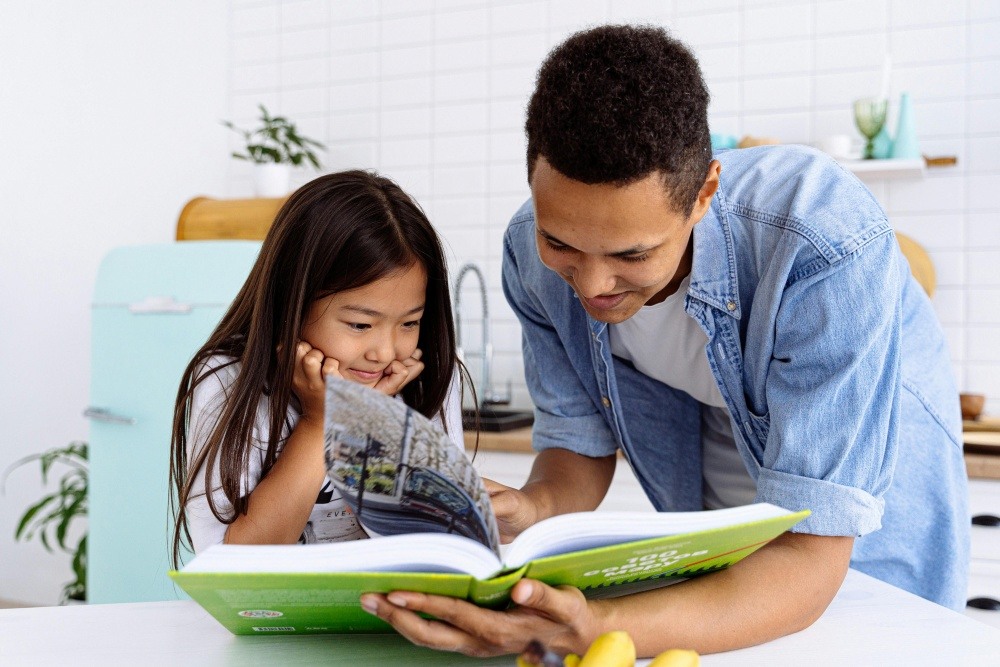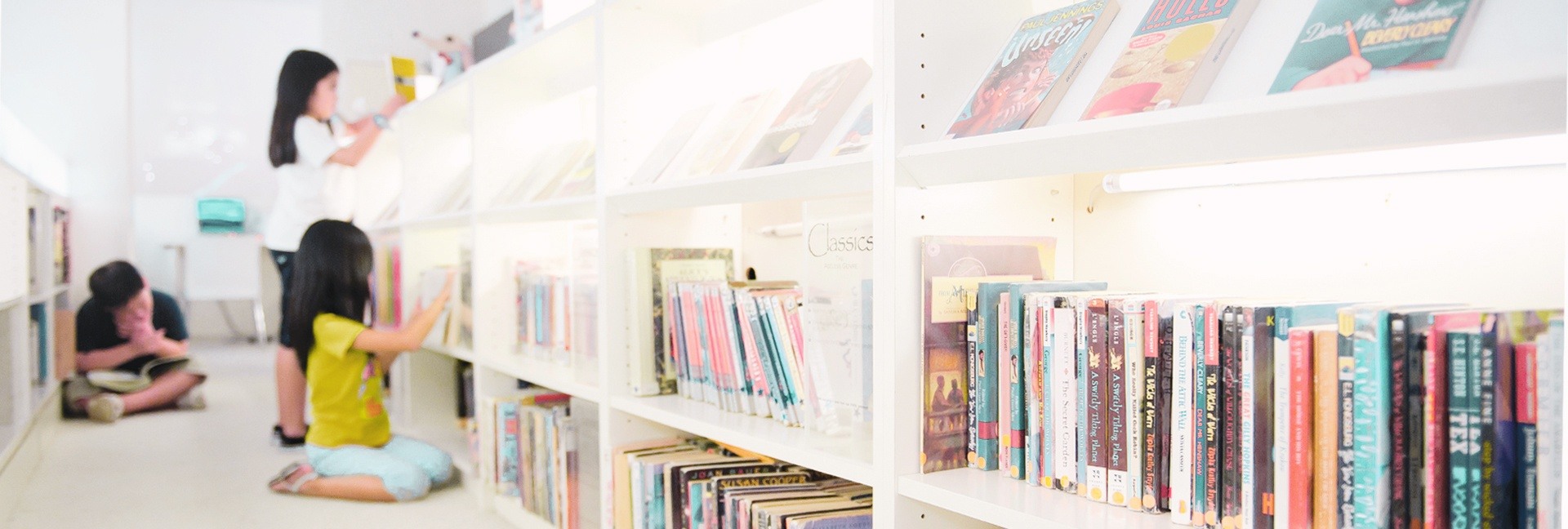
We understand the barriers parents face getting their children to read the news. After all, current affairs may come across as “boring” and “uncool” to your child. However, it does not always have to be the case!
At The Learning Lab, we've crafted our English enrichment class curriculum to transform how news is consumed by students and children, making it engaging and directly relevant to their lives and interests.
The TLL English curriculum introduces you to:


Our unique “Staying Plugged-In” series was designed especially to present news and current affairs in a palatable and interesting way to ignite interest in your child and for them to discuss issues with you. From learning about pertinent and topical issues such as the GST hike and Concert Tourism that have economic impacts to other general issues like the Effect of the Heat on mental well-being, and understanding Multiple intelligences or the Olympics, these topics are presented in ways that resonate with young minds.
But why should you encourage your child to engage with current affairs?
1. They Learn to Form Opinions and Gain Confidence
With just a few clicks, children today are surrounded by an abundance of information. However, this easy access necessitates that we guide them in understanding and forming clear opinions about the information they encounter.
Just like Cory, the curious chameleon who seamlessly blends into his environment, we want your children to effortlessly participate in conversations about the world around them.
But they can only do so if they know what to talk about and have opinions on these topics.
As such, each Staying Plugged-In handout starts off by igniting your child’s interest in the topic. Through including engaging visuals and thought-provoking questions, students are introduced to aspects of current affairs they might not have considered. For instance, when it comes to topics like how concerts in Singapore provide an economic advantage to the nation, they are intended to expose your child to the concept of Concert Tourism.
To help our students further, our Staying Plugged-In handouts shed more light on the topic, introducing students to facts that they may or may not have known about the topic and broadening their understanding as a result.
-3.png)
For example, in The Hidden Effects of Natural Disasters, we highlight how natural disasters affect people outside of the disaster zone in unexpected ways, such as the impact on the supply of produce and meat available in Singapore due to crops and farms being destroyed by through floods.
With interesting facts about each topic at their fingertips, students are then encouraged to strike up illuminating conversations with parents, siblings and friends.
This is where they start gaining the confidence to not only discuss the topic but also express their personal viewpoints. When analysing the GST hike, for instance, students are encouraged to learn about the differences in prices of common items like canteen food and canned drinks to better understand the effects of GST hikes over the years.
-3.png)
Through these discussions, students enhance their ability to articulate their thoughts and participate in meaningful conversations about current affairs. This not only boosts their confidence but also prepares them to handle complex topics in various social settings, fostering a deeper understanding and a proactive approach to learning about the world.
2. They Enhance Exam and Essay Skills
Equipping children with current, factual knowledge on global issues not only boosts their confidence but also thoroughly prepares them for oral exams, Direct School Admission (DSA) interviews, and essay writing. This familiarity with social issues and current affairs is invaluable, especially for older students frequently tasked with discussing these topics in academic settings.
In fact, having facts at their fingertips gives more validity to opinions they may have on any given topic. At The Learning Lab, we introduce our students to these topics at a young age, gradually building a comprehensive knowledge base they can draw from in casual everyday conversations, formal debates, and examinations.
Rather than sitting at a desk and poring through stacks of news, this approach can eventually develop into an everyday habit of accumulating information over dinner or when walking with your child, enhancing their ability to better communicate their thoughts and ideas as they become an increasingly independent.

For example, through the Primary School level activity on the topic “Beyond Book Smarts: Discovering Multiple Intelligence,” students can apply their understanding of multiple intelligences in diverse contexts, including exams. A possible oral examination question could be, “What other skills do you think we need to learn besides the subjects learnt in school?” This encourages students to think critically and discuss the practical application of multiple intelligences in their everyday learning and beyond.
3. They Develop Critical Thinking Skills
“With knowledge comes power” is a cliched expression and yet holds a lot of truth, especially when it comes to understanding current affairs.
The idea is that your child will be able to confidently discuss an issue or topic once they have a solid grasp of the facts and a nuanced appreciation of different viewpoints. This capability is not just about rehashing commonly known facts everyone is aware of. Rather, with an understanding of various perspectives and other angles of any given topic, your child will undoubtedly have an edge as they are bound to develop the skills required to think more deeply about any issue. This then encourages your child to see that perspective-taking and understanding what various stakeholders feel about a given issue or topic is interesting and necessary. It makes them form opinions that are backed by actual facts as they grow older.
4. What Can You Do to Support Your Child's Journey into Current Affairs?

Here are some ideas to help your child read more about current affairs in an engaging and age-appropriate way.
Make it a Family Activity
Turn current affairs into a bonding experience.
• Read the news together: Set aside some time each day or week to read a news article together. Discuss the story, answer your child's questions, and encourage them to share their thoughts.
• Connect news to everyday life: Talk about how current events affect your family or community. Discuss how a new law might impact them or how climate change might affect their favourite outdoor activity.
• Play "current events charades": Take turns acting out current events for each other to guess. This can be a fun way to learn and remember key details.
• Create a family news board or scrapbook: Cut out articles and pictures from newspapers or magazines, or print articles from online sources. Together, create a space to display interesting stories and discuss them over time.
Find the Right Format
Choose the right format to ignite your child's curiosity.
• Kids' news magazines and websites: Look for publications specifically designed for young audiences. These often use simpler language, visuals like infographics and comics, and focus on stories relevant to children's interests. Examples include National Geographic Kids, Time for Kids, and Scholastic News.
• Educational videos and podcasts: Many news organisations and educational platforms offer short, engaging videos or podcasts explaining current events. These can be a great way to spark curiosity and allow for discussions together.
• Interactive apps and games: Educational apps and games can be a fun way to learn about current affairs. Look for apps that focus on specific topics or regions that interest your child.
Spark Your Child’s Interest
Encourage curiosity by exploring topics he or she loves.
• Let them choose the topics: Give your child some choices about what he or she wants to learn about. Maybe he or she is interested in space exploration, animal conservation, or a specific sport.
• Follow inspiring figures: Explore the stories of people making a difference in current events. This can be an athlete advocating for social justice, a scientist working on climate solutions, or a young activist tackling an important issue.
Keep it Positive and Age-Appropriate
Create a safe space for understanding the world.
• Focus on solutions: While some news stories can be concerning, highlight positive developments and stories about people working to solve problems.
• Be mindful of graphic content: Shield your child from overly graphic images or detailed reports on violent events.
• Open and honest communication: If your child encounters something he or she doesn’t understand or finds upsetting, use it as an opportunity for open and honest communication. Talk about his or her feelings and answer his or her questions in a reassuring way.
Cultivate Curiosity with The Learning Lab
Remember, the goal is to cultivate a lifelong interest in current affairs. Let your child be curious, explore their questions, and find ways to make learning about the world fun and engaging.
At The Learning Lab, we understand the importance of current affairs. As such, our enrichment classes for primary school students and secondary school students programmes are designed to spark this curiosity and build a solid foundation to understand complex global issues.
Join us to empower your child to become a confident, informed, and thoughtful individual, ready to contribute to discussions that shape the future.
Articles Related to Reading and Current Affairs
Understanding current affairs from an early age benefits children academically and intellectually, fostering critical thinking and global awareness. Learn how The Learning Lab integrates world-class resources into our curriculum, encouraging students to analyse and articulate opinions confidently.
Explore five ways to instil a love for reading in children. Also, understand the importance of imagination, real-life connections, parental involvement, exposure to diverse genres, and creating a conducive reading environment.
Check out our curated list of recommended books for children across different age groups to foster a love for reading during school holidays.



